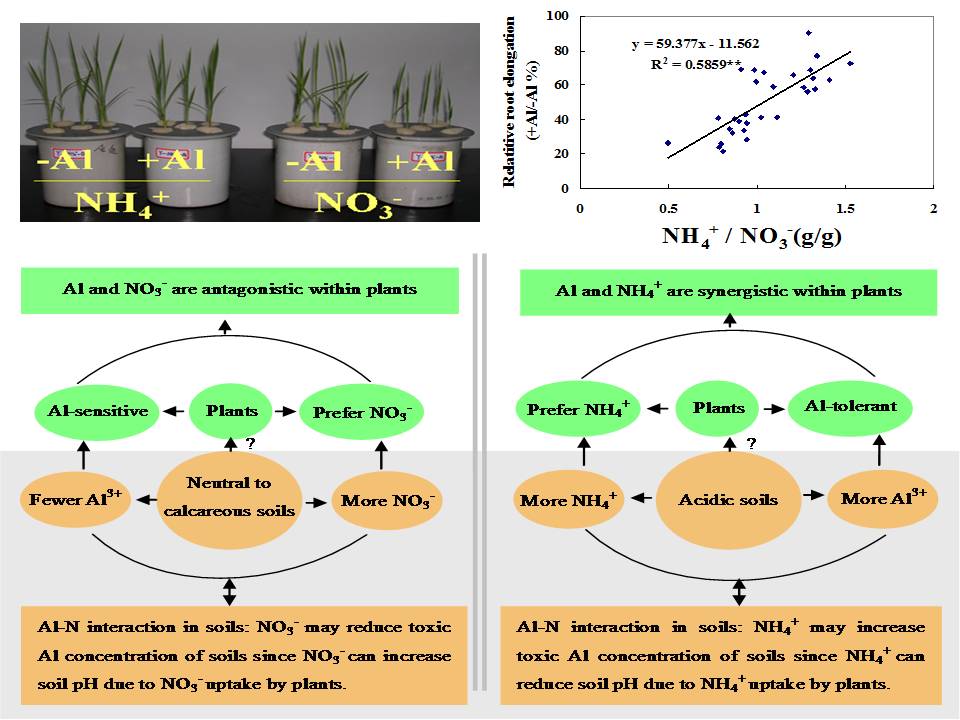Aluminum (Al) toxicity is an important factor limiting crop productivity in acidic soils. More attentions have been paid to the mechanisms for plant Al tolerance in the past decades. Rice is the most Al-tolerant among small cereal crop species. However, the mechanism for rice high Al tolerance is largely unknown.
The research group lead by Prof. Ren Fang Shen at Institute of Soil Science, Chinese Academy of Sciences, noted that rice is an Al-tolerant and ammonium-preferring plant species; in parallel, acidic soils are dominated chemically by more ammonium and toxic aluminum. They found that ammonium alleviated Al toxicity to rice and reduced root Al accumulation compared with nitrate. This finding has been published in Plant and Soil (2009, 315: 107-121).
Al-induced organic acid secretion of roots has been demonstrated to be the most effective mechanism for most plant species. Lespedeza bicolor is a leguminous shrub well adapted to acid infertile soils. Secretion of organic acid anions has been demonstrated to be the main mechanism responsible for its Al resistance. We further found that ammonium alleviated Al toxicity in L. bicolor compared with nitrate, which resulted in decreased Al-induced malate secretion from roots. This finding has been published in Plant and Soil (2010, 337: 389-398).
In order to build up the relationship between Al and nitrogen, we further used 30 rice cultivars to investigate the nitrogen-Al interaction. We found that Al tolerance in rice was significantly positively correlated with ammonium preference but negatively with nitrate preference. Al even enhanced ammonium-fed rice growth but inhibited nitrate-fed rice growth. Finally, we integrated a schematic diagram summarizing the interactions of Al and nitrogen in soil-plant ecosystems. This finding has been published online in Annals of Botany (doi:10.1093/aob/mcs234).
These findings provide novel information for Al tolerance mechanisms of plants. They are also expected to be used to instruct soil nutrient management and plant cultivar selection in acidic soils in the future.

